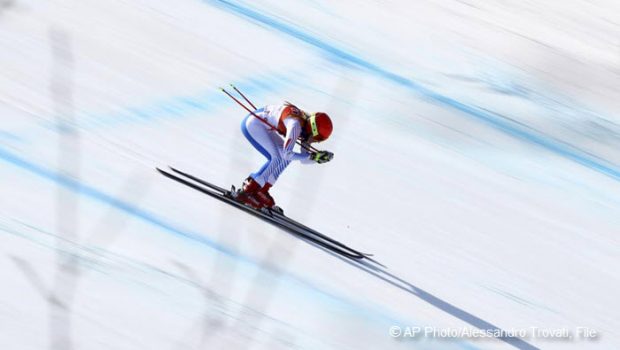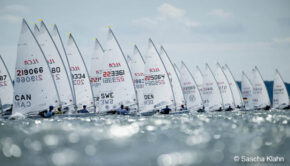What Sailing and Skiing have in common
Published on February 1st, 2022
The Beijing 2022 Olympic Games will be held February 4-20, and while iceboating is still not an event, elsewhere on the winter schedule will be athletes that can totally relate to the sport of sailing… at least its reliance on the weather.
Mikaela Shiffrin describes herself as “super controlling over everything that’s happening in my life,” so the two-time Olympic gold medalist is not all that fond of one particular can’t-do-a-thing-about-it aspect of her chosen sport, Alpine skiing.
“The weather,” she said, “can literally change everything.”
The 26-year-old from Colorado is scheduled to open her Beijing Olympics on February 7 as the defending champion in the giant slalom. A key word there is “scheduled,” because, as Shiffrin experienced at the 2018 Pyeongchang Games, nothing is certain when it comes to the vagaries of various elements such as temperature, wind, sunlight or precipitation.
In outdoor events, all of those factors can, and quite often do, alter the competition and the competitors themselves.
“On a more macro level, it takes a lot of mental effort to be ready to go out and compete in an Olympic event and when … it doesn’t happen … it’s, for sure, stressful and takes energy away from that level. It’s unlike any other sport, in that sense, right?
“There’s just not that many sports that are that affected, and that exposed, by weather, both to affect the outcome of a race and to affect the outcome of an event,” said Mike Day, Shiffrin’s main coach with the U.S. ski team. “It will have a big impact and has had a big impact in the past.”
Olympians say the weather might change their preparation and mindset before a contest. Once the contest begins, it might harm — or, it’s also true, help — their result. All of which turns this into just another source of stress at a one-day-every-four-years spectacle already filled with them. – Full report









 We’ll keep your information safe.
We’ll keep your information safe.